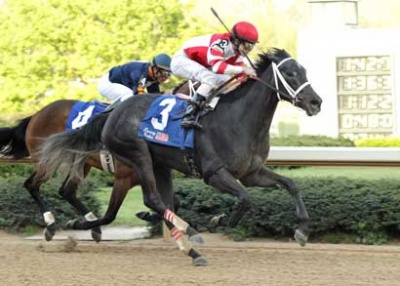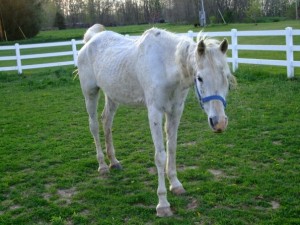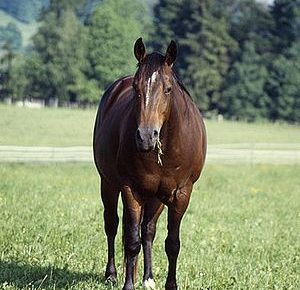
The Equine Herpesvirus (EHV)is very common and affects horses worldwide. There are four different types: EHV-1 can cause neurological disease and respiratory disease. It can also affect a fetus causing abortion; EHV-2 can cause respiratory disease in foals; EHV-3 is responsible for venereal disease in horses; EHV-4 – respiratory diseases.
Transmission of the disease is from direct or indirect contact with infected horses through nasal discharges, aborted fetuses, placental tissue and fluids. There is no evidence of damage to the reproductive tract due to the infection. Pregnant infected mares may abort 2-12 weeks later. Incubation period of EHV is 2-10 days. The virus can be dormant in horses for a long period of time which means that there is a potential risk of disease present.
Horses that are new to a herd or have been away to racetracks, farms, horse shows, etc. should be kept away and isolated and observed for 14-21 days. Any persons who have come in contact with these horses or a horse that is known to be infected should change clothes, wash hands with an antibacterial soap and disinfect shoes before coming in contact with other animals. Any equipment should be disinfected such as feed and water buckets, saddles, blankets, bridles, trailers and their tires before allowing use for other horses.
Shoes can be cleaned with a mixture of 3 parts bleach to 2 parts water. Trailers and their tires can be disinfected with 1 part bleach to 10 parts water.
There is no specific treatment for EHV. Secondary infections can be treated with antibiotics. Nursing care and rest are advised. Following preventive measures mentioned is the key,
Prognosis for horses with EHV-1 if they are able to stand and show improvement after 2-3 days is fairly good.
Update – May 14, 2012
In Douglas County, Colorado, a horse tested positive for EHV-1. The horse was brought from Iowa recently and euthanized when it exhibited severe neurological signs indicative of the disease. All other horses that came in contact with the infected horse are quarantined and being closely observed for any signs of illness.


